It is the unfortunate truth that a lot of history omits women from it's stories. It almost seem like whoever wrote history took the 'his' part of the word a little too literally.
Don't believe us? Try to remember if you ever learnt of any of these women during history lessons in school.
However, the contribution of these women and more should never be forgotten. What better time to remind the world of these badass women than on International Women's Day which also falls in the month that celebrates women in history?
Sybil Kathigasu
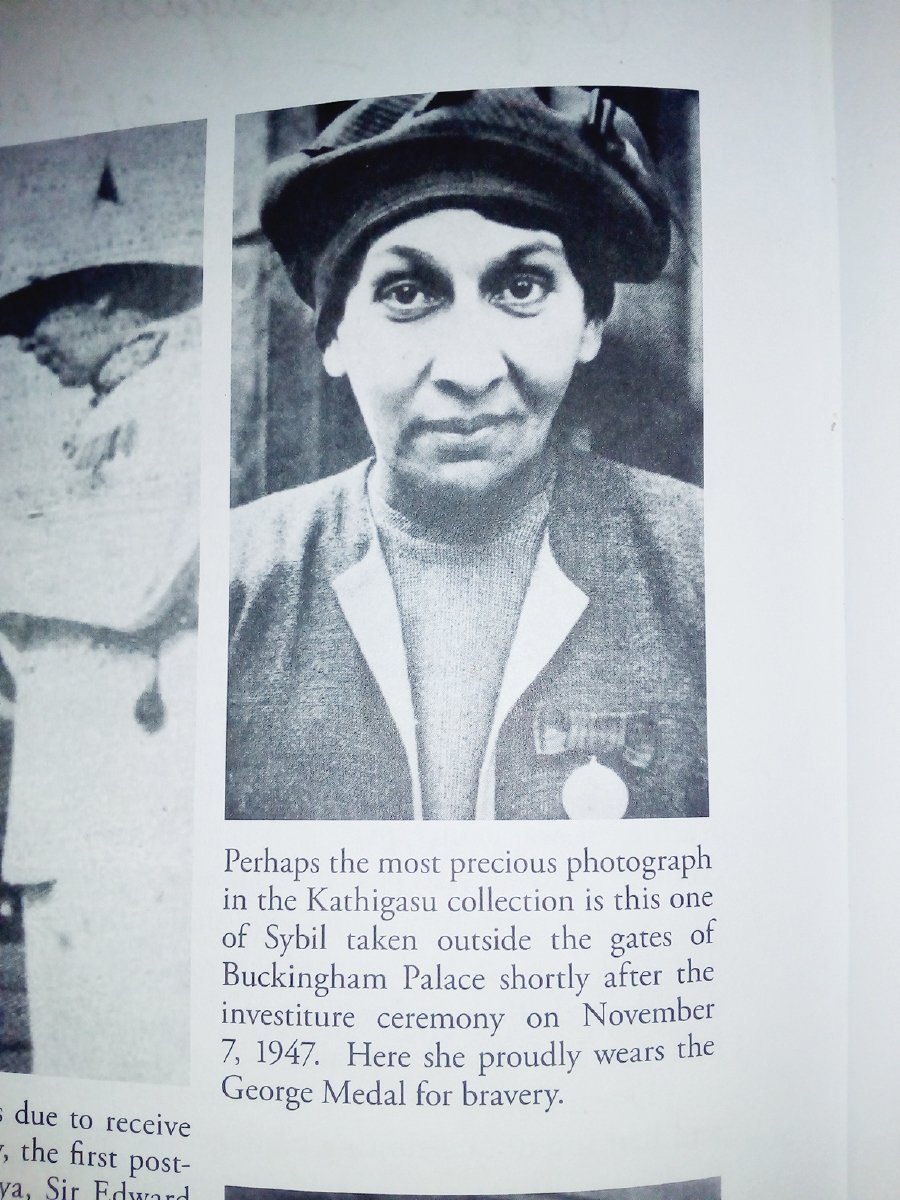
Born to a Irish-French couple Josephy Daly and Martin Daly, Sybil Kathigasu nee Daly was born in Medan, Indonesia in 1899.
Her family moved to Tanah Melayu, where she grew up. She then went to Singapore to study for nursing and midwifery, before returning home.
She married Dr Abdon Clement Kathigasu and both of them ran a clinic in Ipoh, Perak until 1941 when the Japanese occupation occurred.
The couple, together with their children, fled to Papan, a small town close to Ipoh where the continued to treat patients and help the underground movement MPAJA (Malayan People’s Anti-Japanese Army).
Besides providing medical assistance to rebels, Sybil also owned several radios over three years to listen to BBC and provide information to them.
In 1943, Sybil was caught and imprisoned at the Batu Gajah prison where she was tortured for information, which she never gave away.
Sybil, who spoke fluent Cantonese refused to rat on those fighting the Japanese army even when her child was tied to a tree and the army threatened to kill the child.
She was beaten, had her nails pulled out and even put through the infamous "water treatment" where she was force fed a lot of water and the soldiers step on her stomach until she vomits the water out.
Sybil was saved when the Japanese were defeated in 1945. She was flown to Britain for treatment but died in 1948. She was initially buried in Scotland but her body was later brought to Ipoh for a burial.
The war hero is the only known Malaysian to have received the George Medal for Gallantry, a medal given to civilians who perform acts of bravery in, or meriting recognition by, the United Kingdom.
Although Sybil's story is heroic and one worth being spoken about, her connection to communist insurgency and the country's complicated relationship with the topic (basically the tendency to brush off communists' contribution towards the fight against the Japanese because of their other not-so-acceptable actions) means that unless people like you and us keep her memories alive, we might never hear about the likes of her ever.
Irene Fernandez
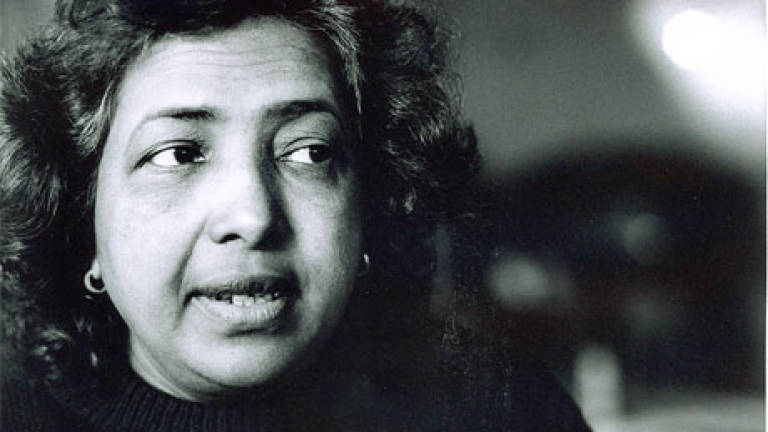
Irene Fernandez is probably a more recognisable name to the younger crowd considering that she was often in the news speaking about the rights of migrant workers for decades till her death in 2014 at the age of 67.
The human rights champion, who was often at odds with the government, fought for years for the rights of some of the most marginalised in the country before she formed Tenaganita in 1991.
Irene was behind the the first textile workers union in Malaysia, spent much of her life fighting for women's rights, consumer rights, the rights of migrant workers and much more.
She bravely spoke against the government, even telling an Indonesian media that Malaysia was not a safe for foreign workers as the country didn't have the laws to protect them (we still don't).
Her most prominent work, which was also one that got her into the most trouble - having a case being heard for seven years and jailed for a year - was when she interviewed 300 foreign workers in 1995 who told her tales of rapes, beatings and inadequate food, water and medical care at government detention centres.
Her sentence was later overturned but the experience never deterred her from continuing to fight for the causes she believed in.
Although her efforts weren't always well received locally, she received many recognitions internationally including the Amnesty International Award in 1998, the International PEN Award in 2000, the Jonathan Mann Award in 2004 and the Right Livelihood Award in 2005.
Shamsiah Fakeh

We'll give the people who wrote our history books the benefit of the doubt and say that Shamsiah was not named as a freedom fighter because of her leftist leanings.
It doesn't make it OK, but stories (even history) are often told in a way that serves the ideologies and believes of those who wrote 'em, so like that lah.
Anyway, Shamsiah started getting actively involved in politics around 1945, when she joined the Parti Kebangsaan Melayu Malaya (PKMM).
It's been reported that both United Malays National Organisation (UMNO) and PKMM wanted Shamsiah in their parties because she was that charismatic and driven, but the lady didn't want to work with the former because she felt they were pandering a little too much to the British.
In 1946, Angkatan Wanita Sedar (AWAS), the women wing of PKMM was formed and Shamsiah became its first president.
Around 1948, the British banned all left-wing parties so Shamsiah, along with other leftist nationalists, were forced to hide in the jungle and fight from there.

That was when her fight for freedom turned from peaceful to forceful. This also marked the beginning of Shamsiah's involvement with the Malaysian Communist Party (MCP).
In order to get rid of the British and gain the country's independence, the groups started using guns and violence as they believed at that time that there weren't any other choice.
It is believed that during this time, Shamsiah had a child and lost it; some even claiming that she killed her own child. She has denied the allegations over the years.
Shamsiah and her (fifth) husband were sent to China in 1956 to learn more about communism and they even ran a Malay-language radio show there!
Fast forward a few years, including two years spent in Indonesian jail, Shamsiah and her husband got kicked out of the communist party in the 1970s but continued to reside in China, working in a factory.
Not until the 1990s were the couple and their children allowed to return to Malaysia, as communism was no longer seen as a threat.
She died in 2008, at the age of 84.
Suriani Abdullah
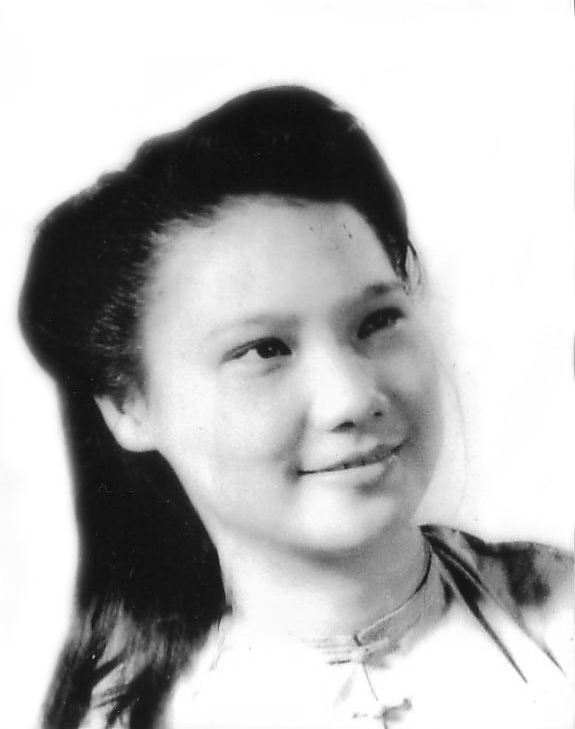
Another Malayan Communist Party (MCP) member, Suriani (original name Eng Ming Ching), was a buddy of party president Chin Peng, whom she met in school.
At only 16, Suriani joined the communist party and fought against the Japanese, which led to her capture and torture when she was only 21.
That didn't stop her from continuing her fight. Even in captivity, Suriani made anti-Japanese speeches to her fellow inmates to keep the fire going.
Suriani never stopped fighting even after the Japanese surrendered. She continued championing the rights of the working class people and the underprivileged.

Despite her fierceness and the struggles she went through, Suriani is known as someone who is motherly; so much so that she's even called 'Ibu' by many.
As many communist party members did in those days, Suriani left the country for Thailand and died there in 2013, at the age of 89.
Cik Siti Wan Kembang
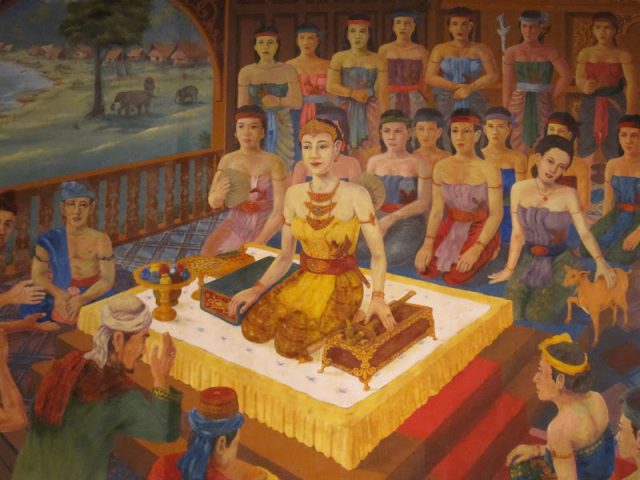
In the early 17th century, there was a female ruler known for her beauty, wit and ability to fight like the warrior she was.
Cik Siti Wan Kembang was the OG feminist. She grew the ecomomy of Kelantan by turning it into a famous port, ran a peaceful country and provided equal education to both men and women.
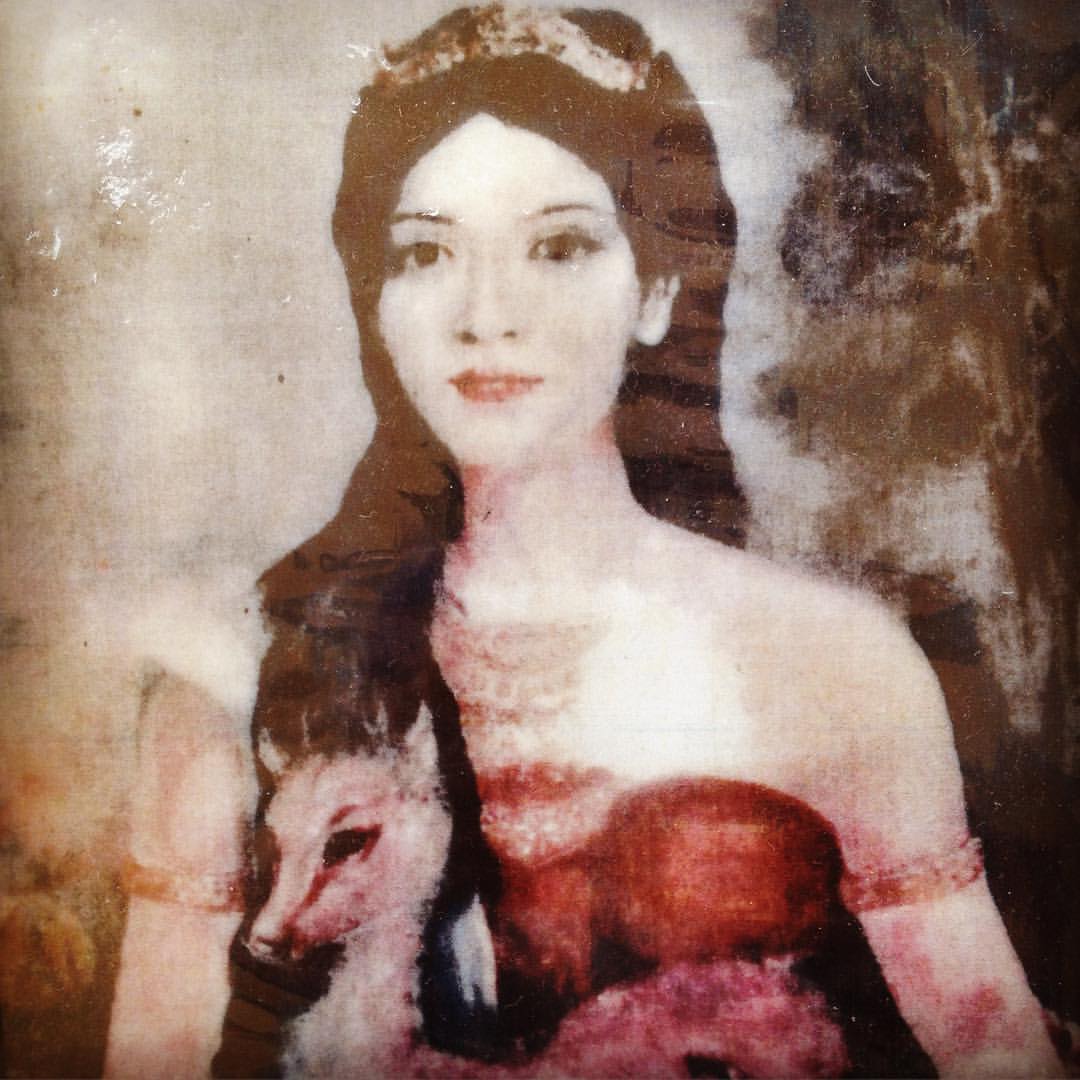 It is said that the ruler never married despite many royals from all over wanting to marry her (who wouldn't want to marry a beautiful, powerful woman, kan?) to avoid any conflict that could lead to war.
It is said that the ruler never married despite many royals from all over wanting to marry her (who wouldn't want to marry a beautiful, powerful woman, kan?) to avoid any conflict that could lead to war.
She did, however, adopt a daughter whom she named Puteri Saadong.
Cik Siti Wan Kenbang is believed to have ruled for 67 years, making her one of the longest reigning queens in history.
A. Chandramalar

Even in 2019, the number of policewomen, especially those in high positions, is much lower than policemen.
But that is not to say we don't have or never had women with caliber holding high positions in the police force.
One example is A. Chandramalar, the country's first woman to head the Anti-vice Branch of the Penang police headquarters and later, the first non-Malay female Assistant Commissioner of Police.
Chandra's family was originally from Sri Lanka, but she grew up in Kluang, Johor, where she first worked a teacher.
However, teaching was too tame for the woman who craved adventure, so she joined the police force.

During her training, Chandra showed great skills in shooting, self-defense, judo, and combat with an armed person.
As the anti-vice chief, Chandra cracked down on drugs, gambling and prostitution on the island. She went undercover as a gambler and prostitute, kicked down closed doors, and generally made life hell for the bad guys in Penang.
Chandra stayed in the police force holding several positions in different departments till 1994, when she retired.
B.H Oon

Lim Beng Hong, better known as B.H Oon, may not have wielded guns or sword to fight against the oppressors or thugs, but she is a hero in her own right.
She was the first Malaysian woman to be called to the English Bar, the first female representative in the Federal Legislative Council and the co-founder of the Malaysian Chinese Association (MCA).
The Federal Legislative Council was in charge of making Federation of Malaya an independent nation, and Oon was a part of it! Cool, huh?
Oon continued practicing till the 1970s. She died in 1979 at the age of 81.
Fatimah Hashim
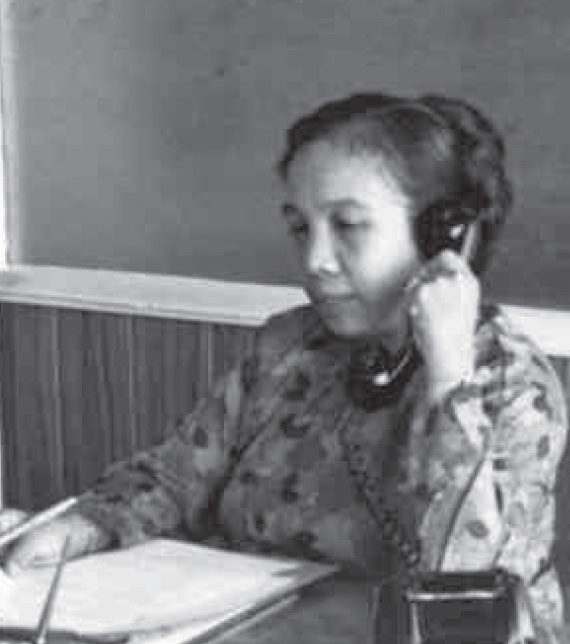
Tun Fatimah Hashim became the first female cabinet minister in the country when she was appointed as Minister of Welfare in 1969.
Her journey in politics started way before, in 1947, when she joined United Malays National Organisation's (UMNO) Kaum Ibu (what would later become Wanita UMNO).
She spent much of her life encouraging women's participation in politics, giving them a greater voice and a chance to have a say in the future.
In 1962, Tun Fatimah initiated Malaysia’s National Women’s Day and she also formed National Council of Women’s Organisations (NCWO), advocating women's rights.
While Tun Fatimah herself never had the chance to further her education, having had to start her schooling in a boys school as her birthplace Muar did not have schools for girls and later moving to Johor Bahru to complete her high school education, she was a great believer in encouraging others to pursue education.
Thank you, heroes
While we're a long way from achieving gender equality, these women and many more have fought tough fights to give us more rights than they ever had and the courage to continue fighting the good fight.Cheers to all the women in our lives who've made our journey that much easier and serve as a reminder of what can be achieved if only we persevere.
Happy International Women's Day! #ChooseToChallenge





